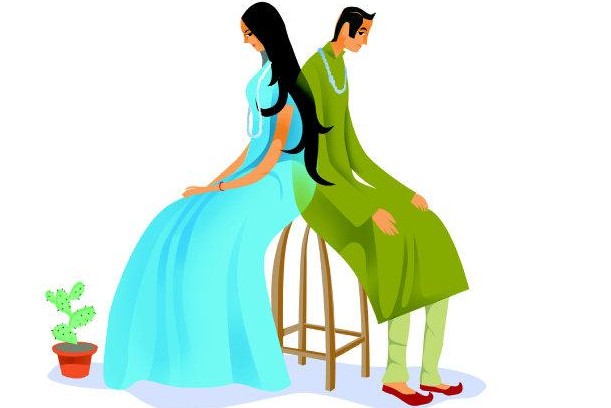The United Nations recently established UN Women to champion gender equality and empowerment of women. In its first major report “Progress of the World’s Women: In Pursuit of Justice,” UN Women highlights both the global plight of women seeking justice and the amazing progress women have made in the past century. Particularly enlightening aspects of the report are the coverage of women in Muslim countries and the accomplishments of Muslim women’s rights groups.
Released in the wake of the Arab Spring, the report emphasizes the active role Arab and Muslim women are taking in effectuating historic change in the region, invalidating the stereotypical view that Muslim women are voiceless and meek. As media coverage of the revolution in Egypt revealed, many Egyptian NGOs that have long advocated for political, social and economic change are organizations run by women. The UN Women’s report highlights similar NGOs that exist in many other Muslim countries and showcases examples of the groundbreaking work being done by these organizations under the direction of women.
The report discusses the impact of the dedication and activism of women in the Muslim world through personal stories and statistics. Certain statistics were particularly surprising. For instance, women in Qatar are said to make 142 percent of the wages of men in manufacturing jobs. Female unemployment rate in Turkey is only 27 percent, which is significantly lower than the unemployment rate of more developed countries surveyed. Women in nearly every Muslim country, including Saudi Arabia and Iran, are guaranteed paid maternity leave.
Even more inspiring are the accounts of longstanding female run organizations that have initiated successful legislative and institutional changes to improve women’s access to justice. In Turkey, for example, the women’s rights movement began lobbying in the 1980s for a new civil code. By 2001 more than 120 NGOs came together to successfully establish a civil code that is based on the principle of equal rights and responsibilities between men and women. The new code equalized the minimum age of marriage and gave the same inheritance rights to all children, regardless of whether they were born within or outside of marriage. After the new civil code passed, the same coalition of NGOs successfully lobbied for a new penal code to criminalize marital rape and sexual harassment in the workplace.
Similarly, women’s rights groups in Morocco successfully lobbied for a new family code that passed in 2004. This family code, the Moudawana, created family sections within all the district courts in Morocco, each with a female social worker and a training program for family court judges. The impact of this new code became apparent when a 2010 study revealed that in cases of domestic violence, women are much more willing to go to the new family courts for divorce, and 85 percent of women surveyed were aware of the fact that they could access their rights to divorce through the family courts.
The Bangladesh Rural Advancement Committee (BRAC) established and now runs the largest NGO-led human rights and legal education program in the world and raises women’s awareness of their constitutional rights, as well as family, inheritance and land laws. With more than 500 clinics across Bangladesh, the program has reached an estimated 3.5 million women. The clinics have enabled women to pursue inheritance claims and take action against illegal marriage, polygamy and the practice of dowry.
The innovative Shirkat Gah Women’s Resource Centre in Pakistan advocates for equal property rights for women. The Centre researched women’s rights issues in relation to local understandings of culture, religion, law and custom, and then provided paralegal training for community-based organizations to enhance efforts these NGOs make regarding women’s rights. In 1990, when the Pakistani government announced a Commission of Inquiry into the legal status of women these paralegals provided crucial advice to the Commission regarding the real impact of law on women in local communities. They highlighted the extent to which Pakistani women are forced in some customs to forgo their inheritance rights and other customs that forcibly marry women to the Qur’an to ensure that their property will never leave the family’s possession. The advice of these paralegals led to the Commission issuing extensive recommendations regarding women’s property rights and a bill is being considered in the National Assembly to outlaw the practice of marriage to the Qur’an.
This passionate and prolonged advocacy extends to cross-border efforts as well. A wide-spread effort involving women’s organizations across the Middle East and North Africa called the “Equality Without Reservations” campaign is currently being facilitated to lobby for the removal of reservations to the Convention on the Elimination of Discrimination Against Women (CEDAW). The global Musawah initiative, involving Muslim scholars and activists from 48 countries, is waging a wide-spread campaign for equality and justice in the Muslim family by calling for reforms to discriminatory family laws and practices. The initiative is based on the premise that Islam mandates “justice, equality, human dignity, love and compassion in relations in the family, principles that are also recognized as universal values and enshrined as rights in many national constitutions and international laws.”
By recounting the achievements of women’s rights movements in Muslim countries, the UN Women’s report provides a crucial framework of strategies for the UN to understand and utilize in their own work regarding the empowerment of women to facilitate gender equality. It also provides inspiration to millions of women around the world ranging from Egypt to Saudi Arabia and Pakistan who continue the difficult fight for equal rights. They have a long way to go, but are off to quite an inspiring start.
U. Mariam Ahmed is an attorney in Chicago and a contributing writer to AltMuslimah.




